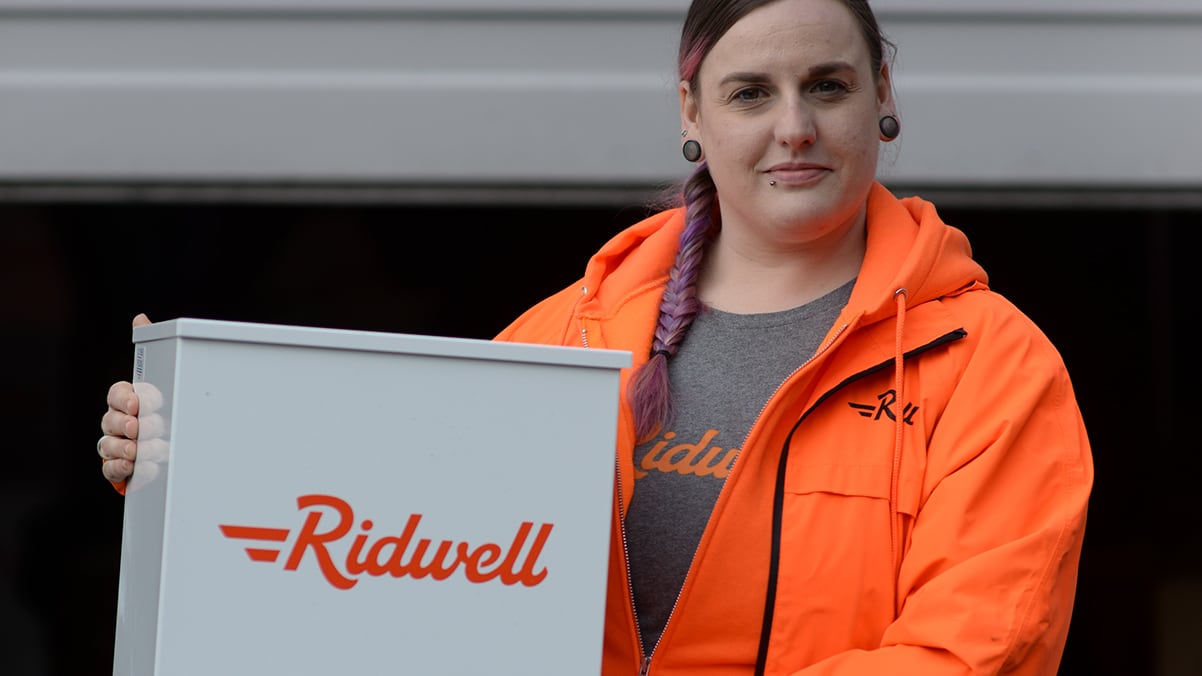Ridwell, the subscription company that picks up hard-to-recycle items like batteries and plastic foam from homeowners’ doorsteps, continues a legal fight with Washington County, which warned Ridwell to cease service last year.
Ridwell entered the metro area in late 2020, and found a strong foe in the franchised trash haulers of Portland and Clackamas and Washington counties, who wanted to keep their territory exclusive to them—even though Ridwell picks up items like batteries, plastic film and light bulbs that trash haulers do not pick up.
Amid the legal spat, the Washington County Board of Commissioners has directed county staff to flesh out a similar program of its own that could only be operated by its franchised trash haulers. This haulers can also choose to subcontract the program’s duties. The program would be offered to residents in most of the county’s unincorporated areas, where close to 40% of the county’s residents live. (The county also passed an exemption allowing Ridwell to continue service until the county program is set up.)
On Tuesday, the commissioners held a work session to hear about the program staff presented. All five commissioners responded positively to the presentation.
The program describes a system whereby homeowners can opt to have their light bulbs, threads, plastic film and clamshells picked up in a lidded box for $9.25 per pickup. (Batteries will be added to the glass container.) The homeowners will separate the materials and place them into individual sacks, and then place them in the box.
It’s almost an exact replica of Ridwell’s model.
There are some proposed changes: Residents pay a base fee of $2.50 per month to participate, and pay a $9.25 fee per pickup and only pay when they opt for a pickup. A Ridwell subscription costs $12 to $16 a month.
The program requires that haulers must offer the service at apartment complexes by July 1, 2023—a service Ridwell currently offers, with some hitches depending on the apartment building.
The program, if the county commissioners approve it April 26, is expected to start by July 1 of this year.
Board Chair Kathryn Harrington, who’s been a vehement opponent of Ridwell, dunked on the company in the Tuesday meeting.
Harrington asserted that the county’s model, unlike Ridwell’s, provides equitable access to residents, “fair and just rates,” and “regulatory safeguards, because our community members have the expectation that this material is, in fact, recycled.”
Ridwell’s vice president of public affairs, Caleb Weaver, replied in an email to WW: “The county is giving lip service to equity while pushing forward with an unjustified monopoly approach that forces the public to pay more for reduced service,” Weaver says, adding that “the implication that the county cannot verify where Ridwell takes the items we collect is nothing more than a baseless attempt to smear Ridwell and justify a gift to the haulers.”
Four hauling companies in Washington County have collectively given $6,000 to four of the five commissioners since October 2021. That’s an anomaly in their normal spending patterns.
Waste Management donated $2,500 among four commissioners since October of last year, the first time it’s donated to any of the commissioners since mid-2020.
Pride Recycling and its partner company, Pride Disposal, donated $2,000 altogether in January to two commissioners, the first time they’ve ever donated to either candidate.
Harrington did not respond to WW’s question whether the haulers’ contributions influenced her views on Ridwell.
When Ridwell first entered the metro area in late 2020, the trash haulers and regulators sowed doubt that Ridwell’s items were going to responsible end markets.
Those end markets for the hard-to-recycle items are currently few and far between, and not scaled to accommodate major cities picking up items en masse. That scarcity of end markets for such materials is a primary reason why Ridwell is filling such a lucrative niche in the market currently.
If the exclusive county program moves forward, the trash haulers will have to seek those same responsible end markets that they cast scrutiny upon when the territory was inhabited solely by Ridwell.
Meanwhile, the legal spat between Ridwell and the county continues.
In January, Ridwell withdrew its service from both unincorporated parts of Washington and Clackamas counties after those counties sent cease-and-desist letters to Ridwell. The company filed a lawsuit against Washington County in January.
On April 8, Ridwell filed an opposition to the county’s motion to dismiss Ridwell’s lawsuit.
In its filing, Ridwell argued that the county did not address the allegations in Ridwell’s lawsuit: “The arguments made by Defendant in support of its motion do not challenge the central allegations of the complaint—that the County’s code and its interpretation of that code results in prioritizing landfilling of waste over recycling in conflict with state law, that the County made it impossible for Ridwell to operate there unless it did so for free, and that driving Ridwell out of the County was the result of a corrupt and unlawful process.”
